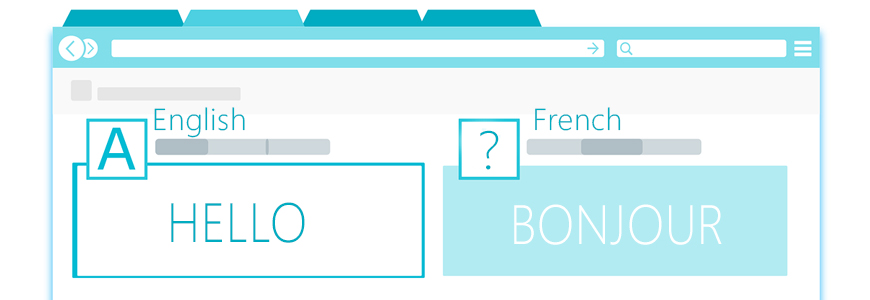
With the internet increasing the ability for anyone or any business to easily secure translations, it’s easy to think that we are in an age where language translator companies fervently compete to offer the best quality translations. But with a market this open, your chances of receiving amateur translations has never been higher. Quantity is being valued over quality. You need to be careful about who you trust to translate English to French or any other language translation. So we’re here to show four examples of when poor translations cost businesses a lot of money.
Perhaps one of the most famous examples relates to British banking giant HSBC. With the banking group looking to expand its foreign operations in 2009, it took its 5-year-old, well-established ‘Assume Nothing’ campaign trademark into the non-English speaking world. However, this posed quite a problem when ‘Assume Nothing’ ended up being translated in many countries as ‘Do Nothing’ – hardly inspiring potential clients into action. The cost of correcting this error? $10 million dollars. Another great example of a costly mistake happened back in 1987 when now defunct Braniff Airways introduced brand new leather seats for their flights between the U.S. and Latin America. ‘Fly in Leather’ was the tagline in this instance and its translation of ‘Vuela en Cuero’ worked in the majority of the Latin American countries; but in Mexico, it happened to translate as ‘Fly naked’. It would surely have attracted particular clients, but perhaps not the clients such a luxury airline would have wanted. When it comes to translations from English to French, such issues of innocent words taking on lewd connotations are quite common. This is more to do with the quality of an English to French translation provided by an amateur, inexperienced or native English translator who misconstrues certain French words.
To avoid this issue, look for professional translations from English to French that are only performed by a translator who is translating into their native tongue. So, for example, avoid enthusiastic UK graduates of French language courses and stick with actual French native speakers who also hold a good grasp of English. A native understanding of English will not help a second-language French speaker produce airtight, accurate copy when compared to a native speaker. Countless businesses have suffered at the hands of those who translate English to French without awareness of local or native slang. Take, for example, Sweden’s Electrolux. When the multinational vacuum company introduced its product range in the US, it wanted to highlight the power of the vacuum’s suction. Unfortunately, they ended up with the unironic and unintended slogan of ‘Nothing sucks like an Electrolux’. Lastly, and perhaps the most stark example of why the native tongue is so important, we turn to one of the world’s top five automaker giants: The Ford Motor Company. When looking to highlight the ‘high-quality body’ of their cars during a Belgian advertising campaign, this was unfortunately translated as the ‘high-quality corpse’. As you can imagine, their campaign was dead in the water.
So don’t take any chances when you need to translate English to French, or even when you want a French to English translation. Only use professionals who are translating into their mother tongue.

